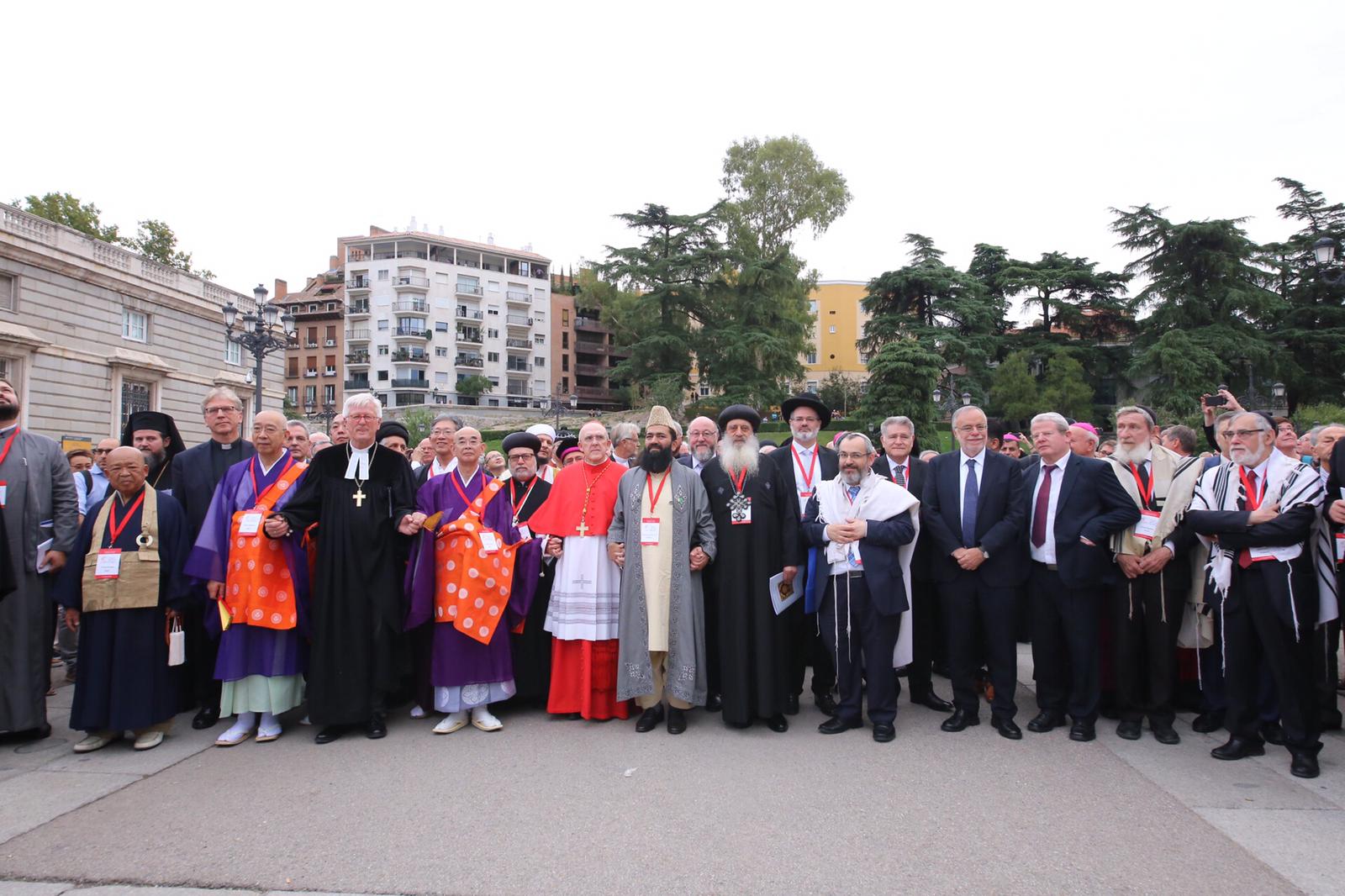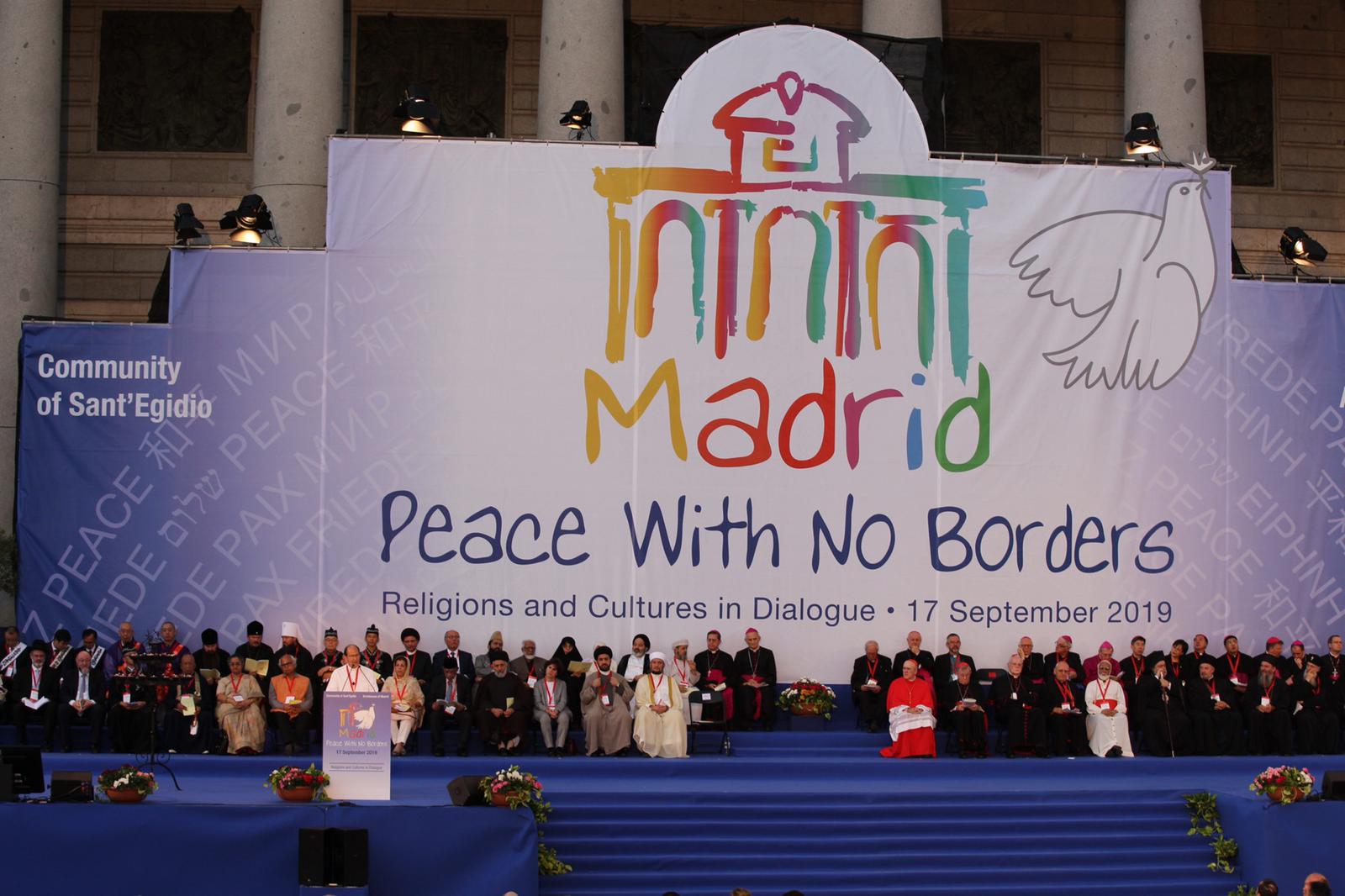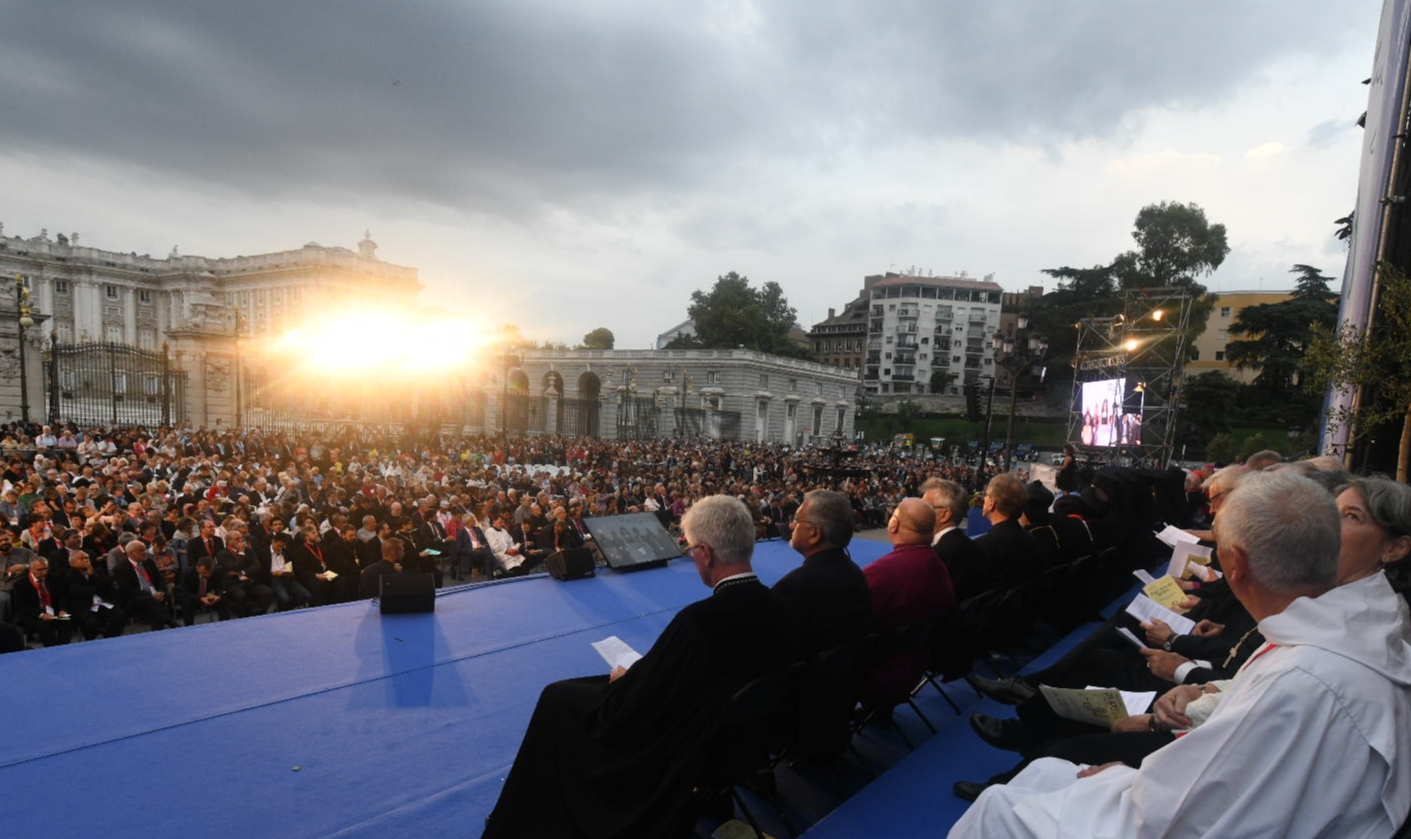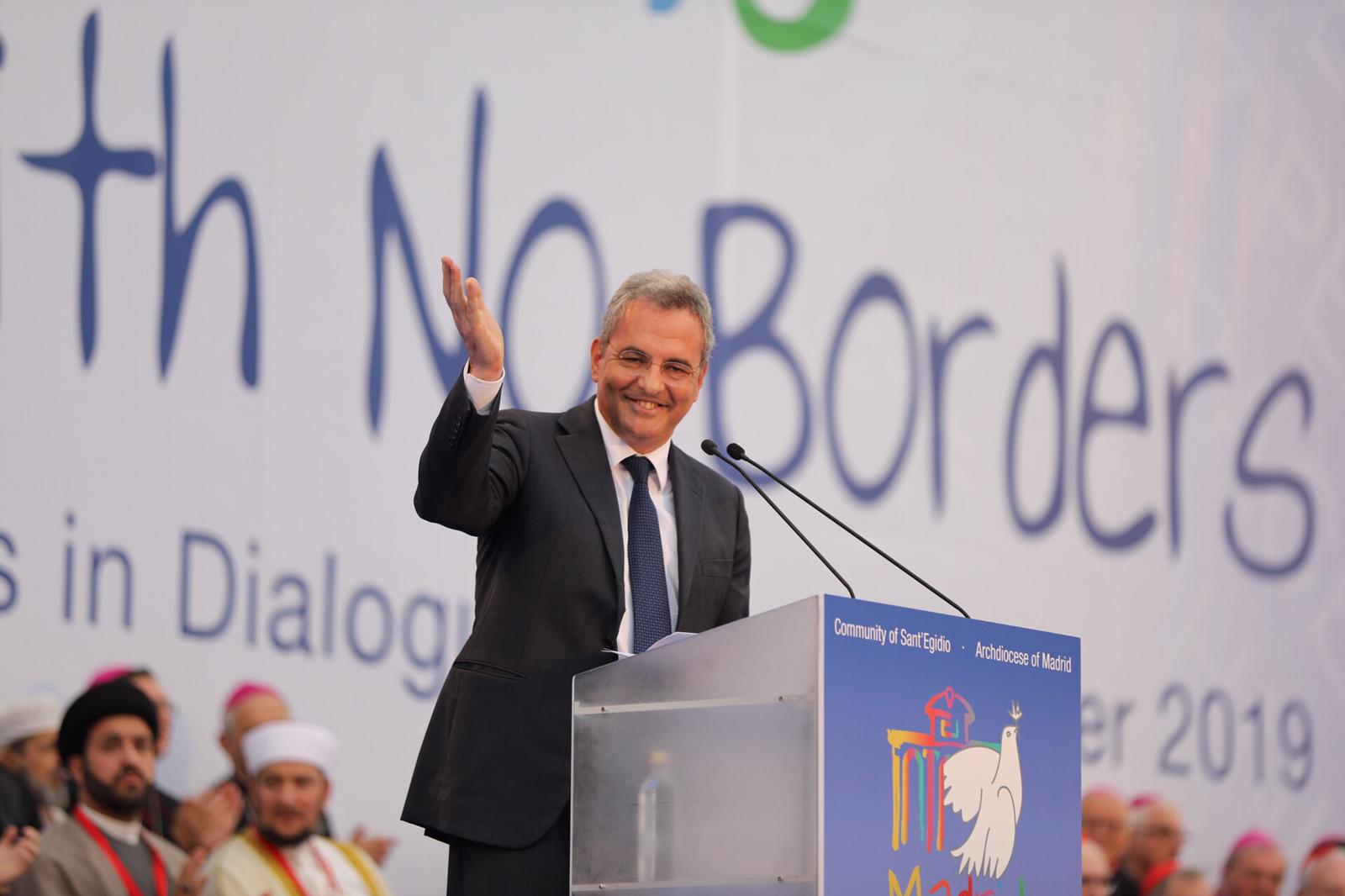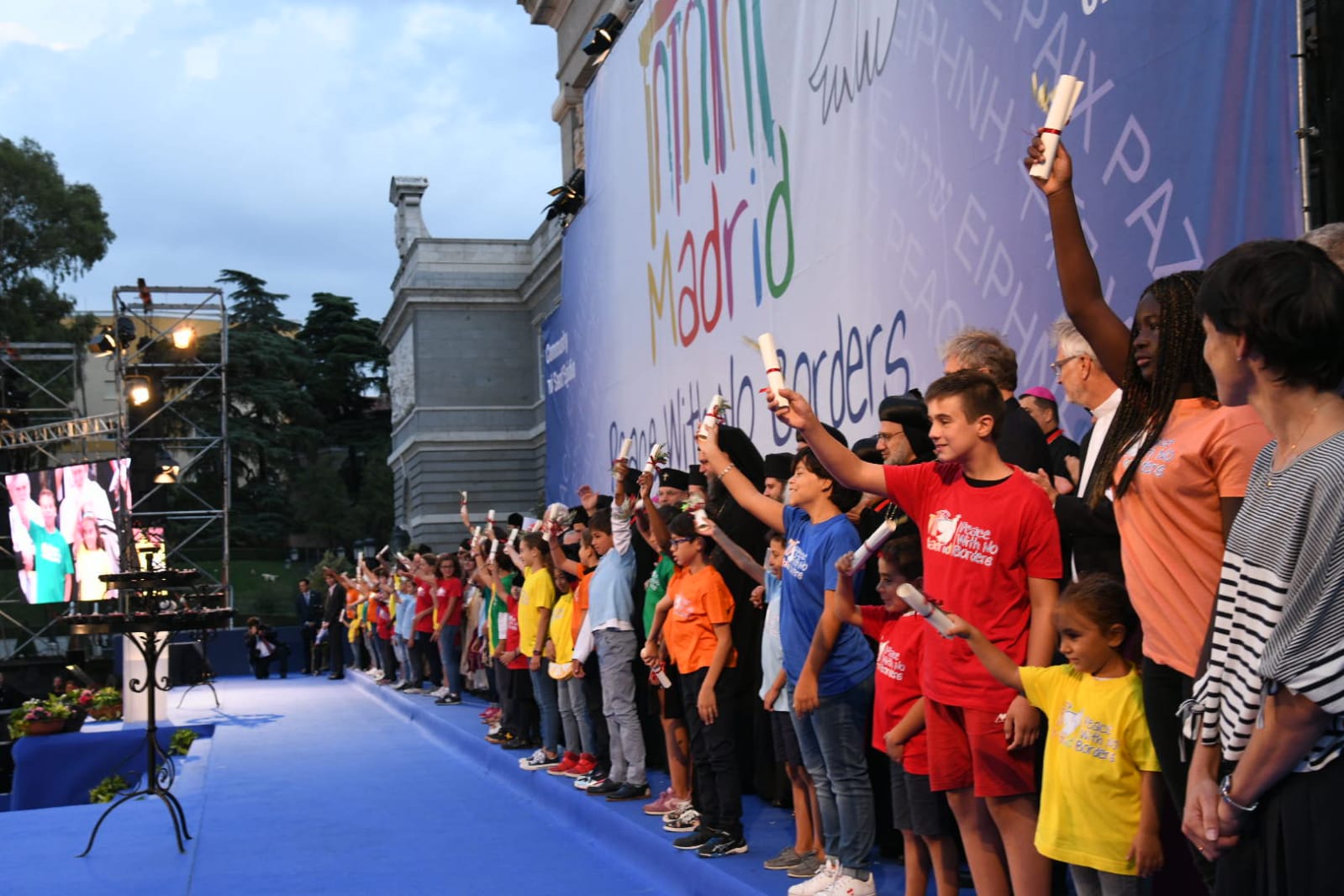September 17 2019 10:00 | Sala Ramón Gómez de la Serna, Círculo de Bellas Artes
Speech of Philip E.R. Dickmans
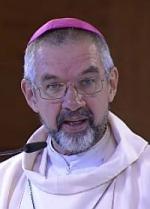
Ladies and gentlemen, brothers and sisters,
It is with great joy and humility, that I come to contribute to this international meeting, organized by the community of Saint Egidio, in the promotion of a culture of peace. I am happy with this invitation and I take the opportunity to do my tribute to my brother Mgr Leon Lemmens, for being one of the great promoters and today is with the Heavenly Father.
I was asked to talk about the Special Synod for the Amazon in a current context of Latin America and especially in Brazil, where I am already 23 years as a missionary and 11years as a Bishop. I want to talk about the preparation for the Synod in the month of October within a very challenging reality that we are living in Brazil
Pope Francis convened the Synod on the day October 15 of 2017 in the Vatican and the Synodal process began on his visit to Puerto Moldado on the day January 19 of 2018.
The 500 years of colonization have changed the lives of the Indians. Colonization and evangelization often went together, but in the course of the history many missionaries made the choice for those people with love and dedication, facing the difficulties to bring the Good News. In addition, the mission was much more than to baptize; also bring health, education, and so many other things for the good of these people.
The Amazon has always been seen with a beautiful territory, with its forest and waters, its peoples and animals, a place of much life, the lung of the world. However, on the other side of that rich land of ores, wood, water, to be exploited without limits. The current government in the person of your president wants to exploit this vast land in anyway. Profit, money, exploitation without limit and without respect. The Indigos and the riverside peoples are seen with lazy, without future, slowing the development.
Money and power speak louder. The president has signed a provisional measure that opens the land of the Amazon for mining and exploitation. In the month of July, deforestation increased by 300%. Indigenous villages are invaded, leaderships are killed. People have to change places. With more freedom to buy weapons, the violence increases. We are going to a new Wild West, where the law of the great and powerful speaks louder. The bishops of the Amazon, since a long time have gathered for defend the peoples and their lands. Priests, religious and leaders died because they spoke in a prophetic voice. Others are threatened or even imprisoned without cause. However, how said Saint Oscar Romero: "A church without persecution is not a prophetic church". That's why the Synod of the Amazon looks like a government concern. For the President of the Republic, the CNBB is the most rotten part of the Catholic Church, for its defense to the less favored of the Amazon. That's why the government wants to supervise us, but whoever does this is the People and God.
The voice of the Popes Paul VI, John Paul II and Francis; the documents of Santarém, Medellín, Puebla, Santo Domingos and Aparecida and the encyclical Laudato lead to think of the Amazon and its peoples in a different way. Where the world has its thought of profit and destruction, the church calls for culture of peace and respect for the peoples and the nature. From there comes the title of the Synod for the Amazon: “New paths to the Church and to an Integral Ecology”. At the end of June was launched the Instrumentum Laboris, which is the result of a work of group chat conversations with the people of the Amazon. The Pope Francis always insisted on hearing the voice of the People of God from Amazon.
The Laboris document helps us to see the reality of the Amazon and makes its proposals:
1. The voice of the Amazon: "It is good that you are now self-defining yourselves and showing us your identity. We need to listen to you "(Francis) The evangelization in Latin America is a gift from Providence that calls everyone to salvation in Christ. Despite the military, political and cultural colonization, and beyond the greed and ambition of the colonizers. Many missionaries delivered their lives to spread the gospel. The missional sense not only inspired the formation of Christian Communities, but also a legislation, such as the Laws of the Indian, which protected the dignity of indigenous people against violations of their peoples and territories. Today the situation in the face of the new forms of colonization leads the church to have more transparency in her prophetic role. Amazon is a source of life, the life of the territory, of its peoples, of the Church, of the planet. The Amazon River is the great expression of this life in its entirety. It is the ' welfare and do-well '; the search for the ' earth without evils '. However, life is threatened by the great projects that destroy and exploit the territory and the violation of the elementary rights of the population. It is worrying that nowadays we are already between 15% and 20% of deforestation. These clamors to live provoke conversion, communion, and dialogue. We need ways of integration with abundance of life, with history, with future. How can we say: All this is interconnected: The Amazon reveals the beauty of God in all things that exist and live amicably.
That is why the Synod is Kairós, a time of grace, a sign of the times in which the Holy Spirit opens new paths which they discern through a reciprocal dialogue between the God’s People and the wisdom of the ancestors. We need to promote the culture of the gathering, the time of enculturation and of interculturity, the time of hope. In all this, we need new paths of dialogue, mission, learning and endurance. We need a path of conversion, to hear the voice of the Amazon and to respond as a prophetic and Samaritan church.
2. Integral Ecology: The cry of the Earth and the poor: “I propose that we should now reflect on the different elements of an integral, environmental, economic and social ecology" (Francis).The Amazon is being disputed by several fronts that impact on the territory and on the peoples that live in it. Lack of recognition and demarcation of indigenous lands, hydroelectric dams, illegal mining, hydropaths, monoculture, agroindustries that are supported by local, national and foreign governments. Pollution of rivers, soils and air, deforestation and deterioration of quality of life, cultures and spiritualities. We need an integral ecology to reach true human development. Our clamor is not the destruction of the Amazon. Other problems: Threat to indigenous peoples in voluntary isolation, the migration, the urbanization, the family and community, the corruption, the integral health, the integral education and the ecological conversion.
3. Prophetic Church in Amazon: Challenges and hopes. "I wish that all the people of the Lord would prophesy, and that the Lord put upon them his spirit!"(Nm 11.29) the Church has to be with an Amazonian face that finds its expression in the plurality of its peoples, cultures and ecosystems. This diversity requires the choice of a missionary Church, on the way out, incarnated in all its activities, expressions and languages. We need the originating peoples to culturally shape the local Amazonian churches. The Amazon face is that of a church with clear choice for the poor and with the poor and for the care of creation, which lead to the new paths to the local church with universal dimension, a participatory and creative church, a church that needs much of Prophetism. We need to decolonize the minds, a church with ecclesial mentality; from colonial and patriarchal to a church in the process of conversion and reconciliation. We need faith within an inculturated Liturgy, organizing communities that possess a rich tradition. Another is the challenge of evangelization in cities that require an urban mission; the need for ecumenical and interreligious dialogue; the mission of the media; Integral human promotion. An observation made by many people is around the new ministries to respond more effectively to the needs of the Amazon peoples: to promote native vocations, celibacy, the place of women, of consecrated life and young people. Let us hope that this Synod is a concrete expression of the synodality of a church on the way out, so that the full life that Jesus came to bring to the world (John 10.10) comes to all, especially the poor.
